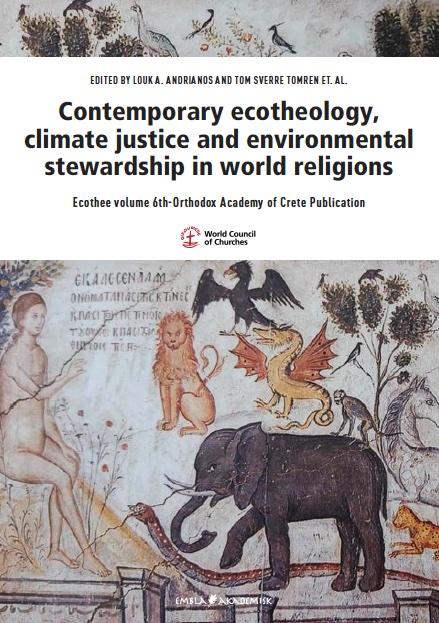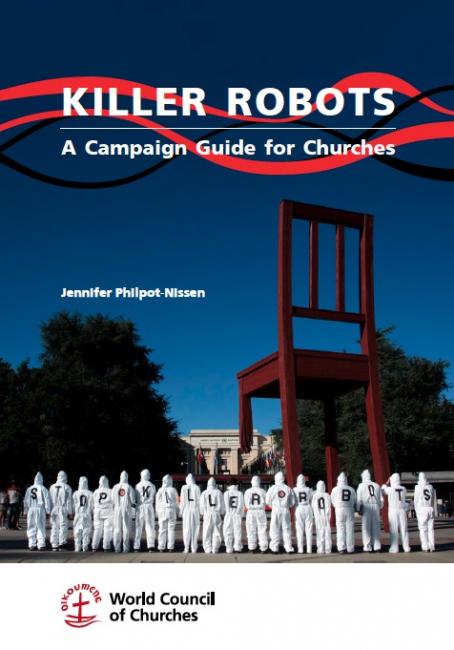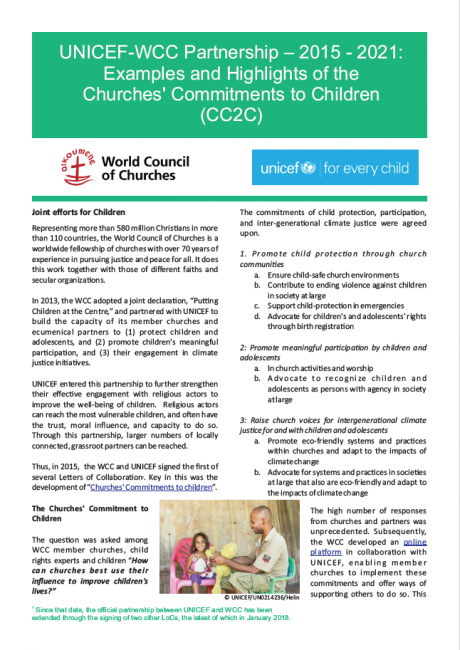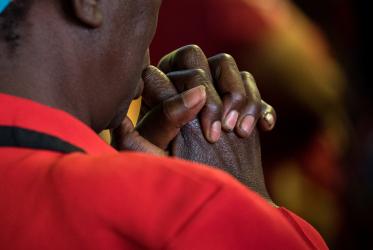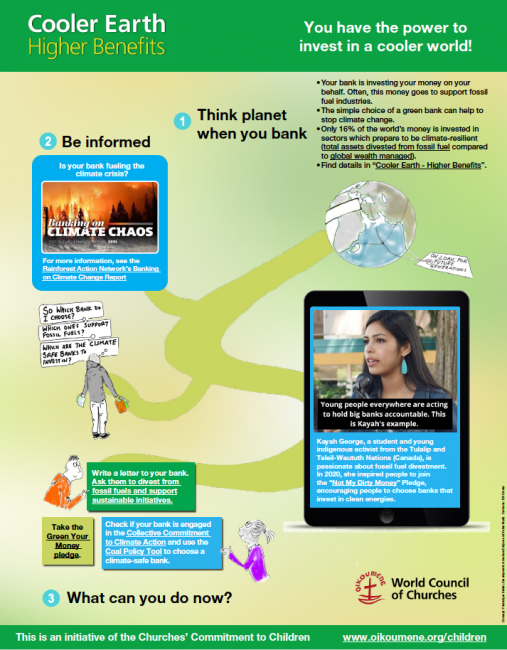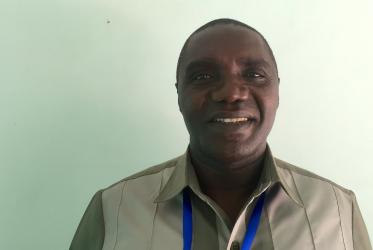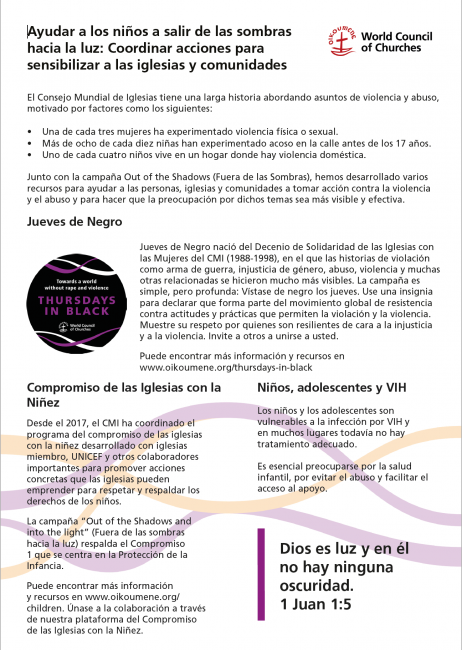Displaying 41 - 60 of 96
Contemporary Ecotheology, Climate Justice and Environmental Stewardship in World Religions
Ecothee Volume 6th-Orthodox Academy of Crete Publication
19 December 2021
ZacTax Toolkit
24 November 2021
Walk the Talk
A Toolkit to Accompany the "Roadmap for Congregations, Communities and Churches for an Economy of Life and Ecological Justice"
31 August 2021
Ecumenical International Youth Day 2021 Event Toolkit
Young People and Climate Justice
06 August 2021
Cooler Earth Higher Benefits: Poster
Actions by those who care about children, climate and finance.
16 July 2021
Helping Children Out of the Shadows and Into the Light: Poster
Church Resources For Ending Sexual Violence Against Children
15 July 2021
Thursdays in Black sheet: Helping Children Out of the Shadows and into the Light
Linking actions to raise awareness in churches and communities
15 July 2021



